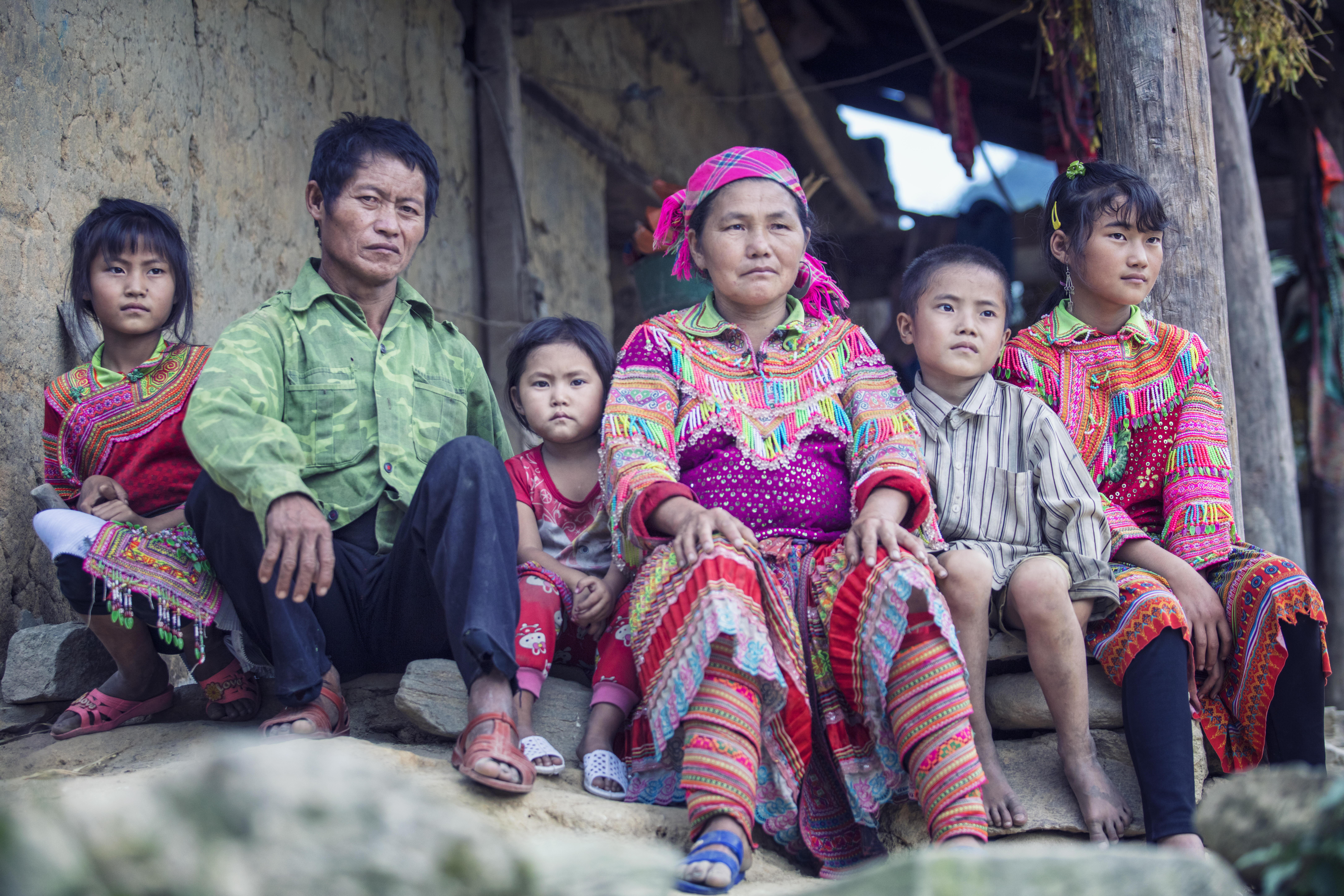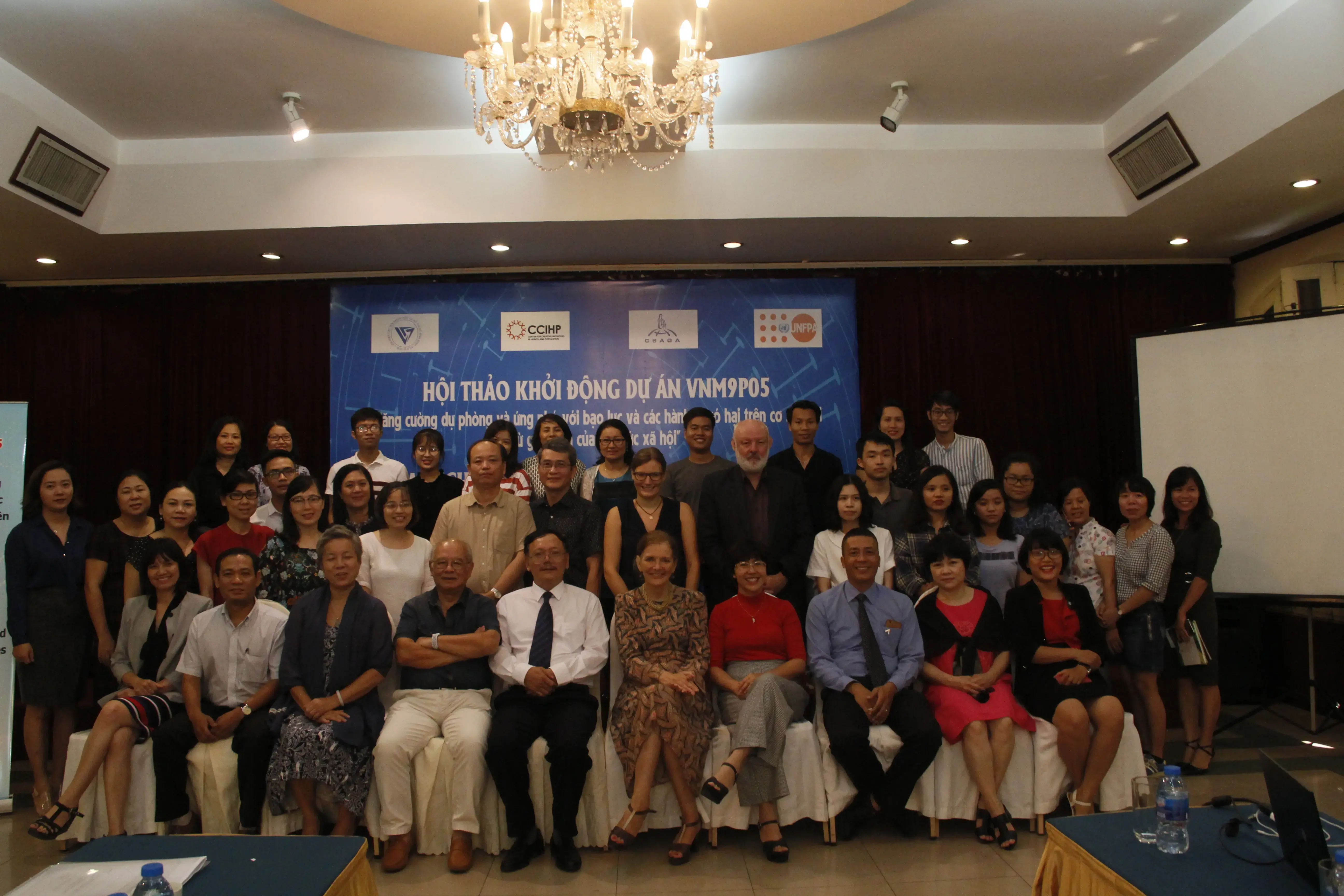HA NOI, 10 April 2020 – A new programme “Addressing Gender Biased Sex Selection and related harmful practices in Viet Nam” has been launched by the United Nations Population Fund (UNFPA) for three years from 2020 to 2022, in partnership with the Government of Norway. This programme will be co-implemented by the Ministry of Labour, Invalids and Social Affairs (MOLISA), the General Office for Population and Family Planning (GOPFP) under the Ministry of Health (MOH), the Viet Nam Farmers’ Union, and the Center for Studies and Applied Sciences in Gender, Family, Women and Adolescents (CSAGA).
It aims at supporting the ongoing Government’s efforts to fully implement approved legal and policy frameworks to end Gender Biased Sex Selection (GBSS) and includes campaigns through innovative approaches to change social norms and practices which reinforce son preference and the low value of girls, strengthening of the capacities of the media, implementation of the fatherhood programme, and streamlining of the country’s coordination mechanisms for GBSS. Data from the National Population and Housing Census, which Viet Nam successfully conducted last year, will also be analyzed further to produce a Census Monograph on GBSS. Viet Nam’s experience and good practice will be shared, in the spirit of South-South collaboration, with other countries in the region, especially with Bangladesh and Nepal, that have also experienced an imbalanced sex ratio as a result of GBSS.
"Strengthening and defending global norms on practices and the rights of girls and women, including work against son preference, is a priority for Norway. In this area, integrated measures to boost the status, opportunities and power of girls and women appear to be most effective. Norway has been working with a wide variety of partners and stakeholders, including UNFPA, to address this issue globally, regionally and locally.”
“I am very pleased that in Viet Nam, UNFPA with the financial support of Norway, is taking the lead on addressing gender biased sex selection in close cooperation with the Government of Viet Nam. Close partnerships and a holistic approach are key measures for success in addressing harmful practices,” said Ms. Grethe Løchen, Norwegian Ambassador in Viet Nam.
Gender equality in Viet Nam has improved over the past decades, but GBSS as a harmful practice remains persistent in society. GBSS has been identified as the major cause of an imbalance in the Sex Ratio at Birth (SRB) in Viet Nam. The skewed SRB in Viet Nam was first identified in 2004, and since 2005, the imbalance towards more boys has rapidly increased and reached 111.5 boys per 100 girls in 2019 as indicated in the 2019 Census.
“The skewed sex ratio at birth in Viet Nam is at an alarming level and tends to continue to spread, both in rural and urban areas and in many regions of the country. Therefore, one of the goals of the Viet Nam Population Strategy to 2030 is to bring the sex ratio at birth to the natural balance. Strengthening gender equality, empowering women and girls, promoting advocacy and communications, raising all people's awareness, and promoting greater participation from men and boys are key solutions to address GBSS. Practical actions are also needed to protect children so that all children are born to have equal rights and opportunities, regardless of their gender,” said Mr. Nguyen Doan Tu, Director General of the General Office for Population and Family Planning.
Evidence shows that this demographic imbalance is a result of pre-natal sex selection based on son preference, which is deeply rooted in the traditional culture in many countries in the world including Viet Nam. Son preference is a powerful manifestation of gender inequality.
“We must put an end to son preference and the undervaluing of girls in our efforts to promote gender equality in the country. Viet Nam is making progress, but the progress must be accelerated within the context of the Decade of Action for Sustainable Development Goals (SDGs),” said Ms. Naomi Kitahara, UNFPA Representative in Viet Nam. “With this new programme, we will support the Government of Viet Nam and civil society to speed up the process of change, towards a modern and progressive Viet Nam where women and girls have the same opportunities to succeed in society as men and boys do, and where we value our girls as much as we value our boys.”
GBSS should be addressed not only to ensure gender equality, but also because the unbalanced sex ratio has significant implications for the population’s marital status, and can also contribute to further fertility decline. As such, more intensified nation-wide efforts are needed to fully implement existing legal and policy frameworks to prevent GBSS and promote gender equality at more broadly.
The Norwegian Embassy and UNFPA in Viet Nam jointly reaffirm our strong commitment to joining hands with the Government, and providing support at the national and sub-national levels to help bring change to this harmful socio-cultural practice. Together, let us all join to stop GBSS, for the brighter future of the next generations and for a prosperous Viet Nam.
For further information, please contact:
Ms Nguyen Thi Hong Thanh | UNFPA Communications
Email: tnguyen@unfpa.org | Tel: 0913093363




